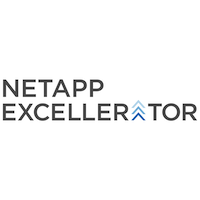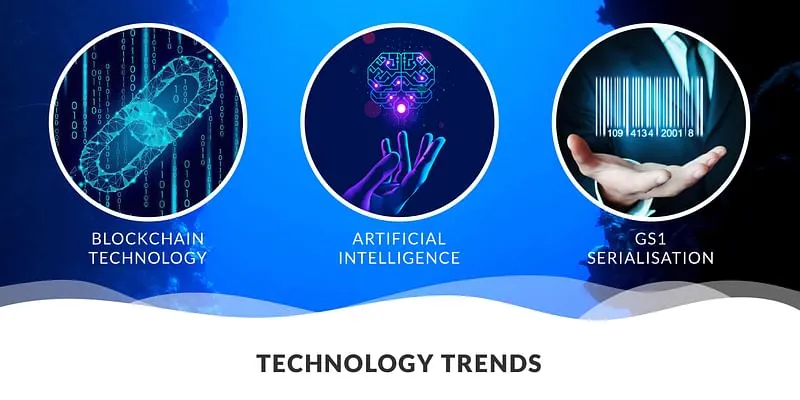
NetApp Excellerator
View Brand PublisherWhy blockchain, AI and GS1 serialisation will define the future of global supply chain
The last decade saw the global supply chain industry undergoing metamorphosis catalysed by the advent of e-commerce. Digital platforms like Amazon were instrumental in shaping the next-generation supply chain with Direct-to-Home product delivery model early on. Consequently, the number of packages used to transfer products had reached 85 billion by 2018, according to the 2020 data from Association for Packaging and Processing Technologies. It was expected to double every four years, but the COVID-19 pandemic brought its disruption. The challenges during the early days of the pandemic with respect to sourcing of PPE kits, testing kits, exposed the fragmentation in the global supply chain. Months later, the need to vaccinate 8 billion people further highlighted the need for a robust global supply chain. In a way, the pandemic made the challenges in the global trade dynamics a personal one.
Why visibility in supply chain is paramount
Today, industries emerging from COVID-19 will need to reinvent supply chains in a way that mitigates exposure to similar risks in the future. Here, digital technologies will be at the centre of this reinvention. But, to fully understand the trends that will shape next-generation supply chains, it is important to de-mystify digital technologies.
In simplest terms, the digital supply chain could be conceptualised as the parallel digital journey taken by any product as it takes the physical journey from source to destination. So if a pack of life-saving Penicillin tablets originating from a manufacturer in Pune undertakes a journey to a patient based in Cornwall in the UK, there would be a parallel digital journey that the same pack would take in the electronic world as it moves physically from the manufacturer to the distributor, wholesaler, pharmacy and eventually the patient. Today, the visibility of this chain of events in the digital world is limited with varying levels of maturity across industries, but it is the ‘demand’ for this unbroken visibility that the future supply chains will need to cater to. What makes this demand inevitable and growing is that consumers, governments and businesses alike have something to gain from this standardised, trustworthy visibility.
Technology trends shaping next-generation supply chain

The top technology trends shaping next-generation supply chain are expected to originate in the end-consumer demand as well as business use cases enabled by the rapid development of technologies in other domains. Successful supply chains of the future are likely to embed some or all of the elements of these trends.
1. Blockchain: Even as crypto currencies popularised Blockchain, there was a quieter, more fundamental shift happening in business applications enabled through Blockchain principles. In consensus driven digital ledger technology (DLT), data records are created and updated with the consensus of all parties involved in a close network of businesses. This makes data ‘immutable’, even by the party that created it and it is this immutability that enables enterprise-grade Blockchain to bring trust in data. In the supply chain world, if the details of the product origin and its journey, like in the case of the Penicillin example shared earlier, were stored using Blockchain, it would bring inherent trust in the product. This would enable the manufacturer in India meet UK Medicines and Healthcare Regulatory Agency (MHRA) regulations with ease, help MHRA test process adherence efficiently and assure the patient consuming Penicillin that the medicine they bought is safe.
2. Artificial Intelligence (AI): AI technologies are developing at an exponential pace and are taking some or all of the following routes:
a. Augmented Intelligence – where repeated tasks are automated to bring efficiency
b. Machine Learning – where machines learn by performing certain tasks and increase their own knowledge automatically
c. Smart technologies – which combine AI with other technologies like Blockchain and cloud to bring holistic smart solutions
In the context of supply chains, all three aspects of AI are at play. AI machines with the ability to analyse and predict demand data, would help manufacturers achieve ‘Just-in-Time’ production and make the entire supply chains efficient, green and cost effective. Again, taking the Penicillin example, if AI engines could analyse consumption trends and data emerging from Cornwall, manufacturers could get accurate real-time information on how much to supply, when to trigger supply and reroute consignments from areas of abundance to areas of scarcity. Consequently, pharmacies and hospitals can minimise or even eliminate the risk of running out of life saving medicines.
3. GS1 Serialisation: GS1 Serialisation is a standardised technique used to concoct numbers and characters providing product consignments with a unique, difficult to replicate identity. Developed by GS1, an international, non-profit organisation that publishes a system of supply chain standards, serialisation works on the principles of security, interoperability and scalability, GS1 standards are today used by 2 million+ companies operating in 145 countries. Pharmaceutical industry, where regulatory adherence is more stringent, has taken a lead in implementing GS1 serialisation. A pack of Penicillin tablets, starting its journey in a factory in Pune, labelled with a unique GS1 serialised data can be securely tracked from the factory to the patient. There are early signs of widespread usage of this GS1 serialisation especially in agriculture and food industries.
Provenance tracking and the need for immediate adoption of technology trends
With growing consumer awareness on issues concerning safety, ethical sourcing, climate change, the demand for trustworthy ‘provenance tracking’ is due for an explosion. Governments are working to develop regulations that require provenance tracking information. This can be seen already in the healthcare industry where many countries are following the lead taken by US DSCSA (Drug Supply Chain Security Act) and European FMD (Falsified Medicines Directive) and implementing regulatory requirements for supply and distribution of healthcare supplies within their boundaries. The promotion of a circular economy, reducing wastage and rerouting goods, further strengthens the demand for end-to-end visibility.
A combination of Blockchain, AI and GS1 Serialisation holds the promise to provide a robust, secure and trustworthy end-to-end visibility of product origins and their journey. The winners in utilising the opportunity created by explosive demand for provenance tracking will be early movers that can create differentiated and simple-to-use implementations, thereby democratising technology usage.
And, this couldn’t be more exciting for all of us at Tongadive. Over the last few months, we have intensified efforts to simplify supply chains. Today, we are well on our mark to launch our first product in the market. Named Evidnt, the solution works at the intersection of Blockchain, Serialisation and AI to bring secure, immutable, predictable product origin and journey information as consignments travel from source to destination. Evidnt has been designed to address supply chain challenges in the healthcare sector. But, given the universal nature of the solution and challenges, we will also plan to expand the scope of the solution to address challenges in the agriculture and food sector. And, the last few weeks spent at the NetApp Excellerator has provided Tongadive the opportunity to mature a product like Evidnt and make it market-ready.
The increasingly demanding provenance tracking in the supply chain sector is a clear indication for businesses to begin building the supply chain of the future, right here, right now. And, a solutions provider, we believe Evidnt has everything it needs to help businesses do that.
Applications for Cohort 9 of the NetApp Excellerator and Cohort 3 of NetApp ExcellerateHER, NetApp’s accelerator program geared towards empowering women founders, is now open. Check here for more details. Link: https://bit.ly/3jV2VdW







